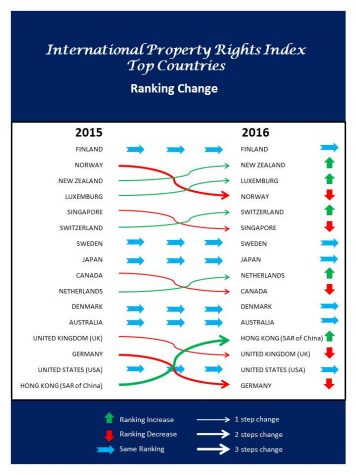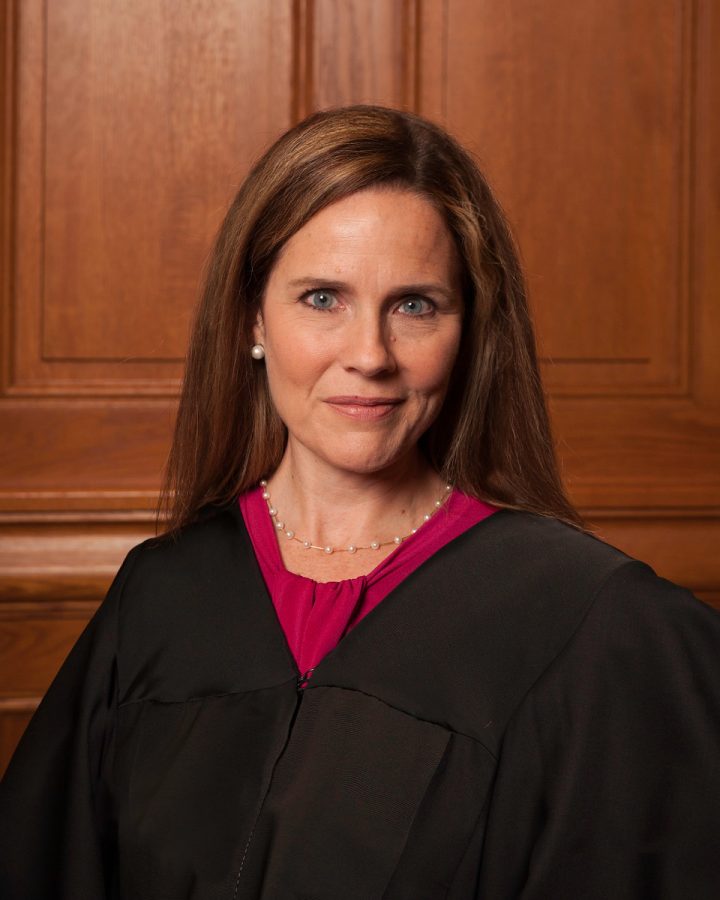A lot of time is wasted in political discussions when people try to define ideologies and systems. The 2016 election was one of the first US elections in which a candidate using the “s-word” had real chances of winning. In an article by The Atlantic “Bernie Is Not a Socialist and America Is Not Capitalist”, Marian Tupy, who is a senior policy analyst at the Cato Institute, writes about the discussion of the self-proclaimed democratic socialism of Bernie Sanders and how his views tend to align far more with social democracies. The truth is that there is a fundamental gap between those two ideologies; although the taboo from that world is gone thanks to Bernie, it did divided the nation between a new left and an old right (Bazinga). Many progressives decide to fight the flaws of capitalism through its abolition, however once they are given practical examples, they tend to align with laissez faire policies; therefore they seem to have an issue with a different system, call corporatism. But once again, is there any difference between those two? A society run by the capital and one run by the corporations, and does that actually matter?
In 1789, there was an event that would change the life of humanity, not just the western civilization, but humanity: the French Revolution is likely the most important revolution fought in both modern and contemporary history (probably the October, Taiping, American and the Glorious being the only rivals). The values that the West holds today are liberty, equality and fraternity, all come from this event. The French Revolution also gave us the terms “left and right,” which are now widely used in the political life of almost every nation. During the Revolution, there was a national constituent assembly; the supporters a Parliamentary Monarchy were sitting on the right side of the assembly, and those who favored a Republic on the left side. The left-right identity grew to define how most parliamentarians, congresses and assemblies are structured through many legislatures in most democracies.
The American culture tends to strongly see issues as black and white; you are either on one side or the other. According to columnist Dennis Prager, author of books like “Dark Time in America” and “Still the Best Hope: Why the World Needs American Values to Triumph,” the main difference in the US between the left and the right are the views on the government and its size. I partially agree with him; however, since the rise of conservatism in the ‘80s, the state keeps increasing its size, just in a different way. We shall not only be critical on the size of the government but also its shape. As long as the state allows death penalty, torture, institutionalized discrimination, indoctrinates religion on public education, have an unfair immigration system, regulates sexual life, penalizes illnesses such as drug addiction, or spends 600 billion dollars every year on the military, there won’t be a small government. This can be better understood in the brilliant debate between the Cato Institute and the Heritage Foundation, two of the most prestigious think tanks in America.
There is also a difference between the economic system that a country adopts and the pure nature of the government, although some of them do have a relationship. As both a libertarian and a socialist society couldn’t accept a theocratic state, the first one because it would be an attempt on religious and personal lives, and the second one for considering religion as collective mental slavery. So this list is not about the power source (ex. a democracy, a republic an oligarchy, or an autocracy, etc), neither a list of the people in power.
This following six ideologies have been the most hurtful to humanity and are responsible for taking the lives of hundreds of millions. Every political discussion in Western civilization should stay away from these nasty philosophies.
Maoism: This socialism, which some may consider the most radical, was implemented by China after seeing the flaws of the socialism in the USSR, and it stayed like that until the Deng Xiaoping’s free trade reforms. It advocates for the same proletarian distribution of wealth, but it focuses it’s efforts in the farming and the agriculture sectors, instead of the industrial fields. It also believes that society is run through the will power, instead of human nature.
Marxism-Leninism (Classical Socialism): The state must own the means of production, manage a planned economy, centralize democracy and advocate for nationalism. It can only be achieved through a revolution. Cuba and the USSR are the best examples.
Trotskyism (Permanent Socialist Revolution): According to Trotsky, a socialist state cannot coexist alongside capitalist countries; therefore, the revolution must be extended to other nations through permanent war, until it is achieved.
National Socialism (a type of Fascism): Far authoritarian centralism, in which the state works to end social classes and to ensure the purity of a single superior race. Society must also advocate for the extermination of ethnic enemies. This was only fully practiced in the ‘30s-40s Germany.
Fascism: Society must use war and imperialism as the means to achieve any goal. Morality must be regulated, towards tradition and social roles. The state also invests in big industry and opposes any kind of labor rights. Franco and Mussolini are good examples.
Corporatism: A full free market society, in which individual rights are sacrificed in order to gain economic power. Therefore slavery and race and gender inequality are not only acceptable but necessary. Porfirio Diaz is an accurate example of this system.
The next ideologies are the foundation of most of Western democracies, and they are the most basic. There are multiple branches that have derived from each of them. I have decided NOT to mention philosophies that haven’t been tried in history (communism, capitalism, anarcho collectivism, libertarian socialism, etc.)
Libertarianism: It advocates for strong Laissez faire policies, abolishing the state’s duties as much as possible; it defends the principle of non-aggression and increases the freedom of the individual, hoping that free market will benefit all members of society. To understand this ideology, it is recommended to read political theorists like Rothbard and Hayek. Currently, the best example within the United States is the Libertarian party. One of the best know Libertarians (and a personal favorite) is the Nobel l Prize in Economic Sciences winner Milton Friedman.
Classical Liberalism: This doctrine promotes a government that avoids interfering with the market and people’s personal life. Free market is key, however unlike libertarianism, if a crisis demands it the state will intervene. Equality is a value that also plays within classical liberalism, yet it doesn’t support the redistribution of wealth, but prefers provide an equal opportunity on education. Libertarianism is a more modern/radical version of this philosophy.
Social Liberalism : This is what many people would consider the most centrist ideology in the compass; it balances the labor’s rights and social justice with free market and individual liberty. It does apply some socialist policies, such as public education or universal healthcare. Therefore, the state must allow competition but regulate trade so it is fair instead of free. The Democrats tend to align with Social Liberalism.
Neoliberalism: Stands for a government that does not interfere with the economy at all; it focuses on privatization and eliminating or reducing the barriers of international free trade. It also reduces government spending and favorites. It antagonizes the concept of collective good. However, the state does have a big intervention on the military, like radical expenses in the defense budget. Examples of famous neo-liberal politicians are former Prime Minister Margaret Thatcher, President Reagan and General and dictator Augusto Pinochet.
Conservatism: This philosophy holds a limited government, however endorses private authoritarian institutions that regulate the moral life of the individuals. In the US, conservatives tend to believe in religious influence on early education and opposition of change of gender and race roles. Conservatism believes in free markets and free enterprise as the best ways to ensure a strong middle class. The best example of conservatism is the current platform of the GOP, and a character that can be read is the brilliant political philosopher Thomas Sowell.

Social Democracy (Welfare state): This ideology operates within capitalism, but it’s exceptic of its results, and that’s why the state intervenes in the economy, which tries to achieve social justice. A social democracy advocates for a mixed economy between capital and social systems, yet it prioritizes the respect to private property and does not believe in nationalizing large or medium companies. Many laws are in place to ensure the well-being of the citizens, such as power to unions or high minimum wages. The best example of social democracies are the Nordic countries and our friend Bernie Sanders. Is important to emphasize that the social democratic movement in America is self-call “progressive.”
Democratic Socialism: This philosophy is the closest to Marxism that is found in everyday politics. The people that follow this philosophy believe that Capitalism is against liberty, equality and fraternity, the “Universal Values.” Therefore, the state must take care of every aspect that involves the dignity of the living. Health, food, housing, transportation, water and electricity are all rights, and they should be considered responsibilities of the government. Although Bernie Sanders has called himself a democratic socialist, he isn’t,, his respect to private property is the biggest evidence of it. The example of this ideology in the US is found in the platform of the Green Party.
Populism: This itself is not a belief, but it’s described as politicians going with the will of the people, without having a clear stand on issues. There are populists all over the spectrum, as you can have a left populists (Hugo Chavez, Elizabeth Warren) or right populists (Marine Le Pen or Donald Trump).
State Capitalism: A type of socialism in which the state acts like a corporation, owning stocks and investing to monopolize its power. In order to achieve prosperity, private companies have to play a role working together with the government, or more often, the government must own the means of production and run it as a business. State Capitalism varies and is an unstable philosophy. China is the definition of a State Capitalist country.
Dirigisme: The state influences the market through benefits and investment in certain areas. Ex. When a foreign company tries to buy a national company, the government does everything it can to stop it. South Korea and France are the most notorious examples.
From all these ideologies comes the question of which one can achieve economic prosperity. The answer is hard to tell. Many state, with solid arguments, that a social democracy is the best system, and as an example, they mention the Nordic countries which have high standards of living and good wages and are some of the happiest countries in the world; however, non country with more than a eleven million population seem to reach it social democracies. Others argue that any intervention by the state in the economy is a mistake, and there are good examples of how it can ruin a country, but again, prosperity can be achieve trough state intervention. Nevertheless, certain factors are always necessary to develop sustainability, including respect of private property, respect for the powers of local governments, fluid immigration, international trade, cooperation among nations and investing in education have been proven to be the most effective ways of successful societies. Besides democratic socialism and libertarianism. I don’t see reasons to believe that all of these philosophies could be successful, if well implemented.












